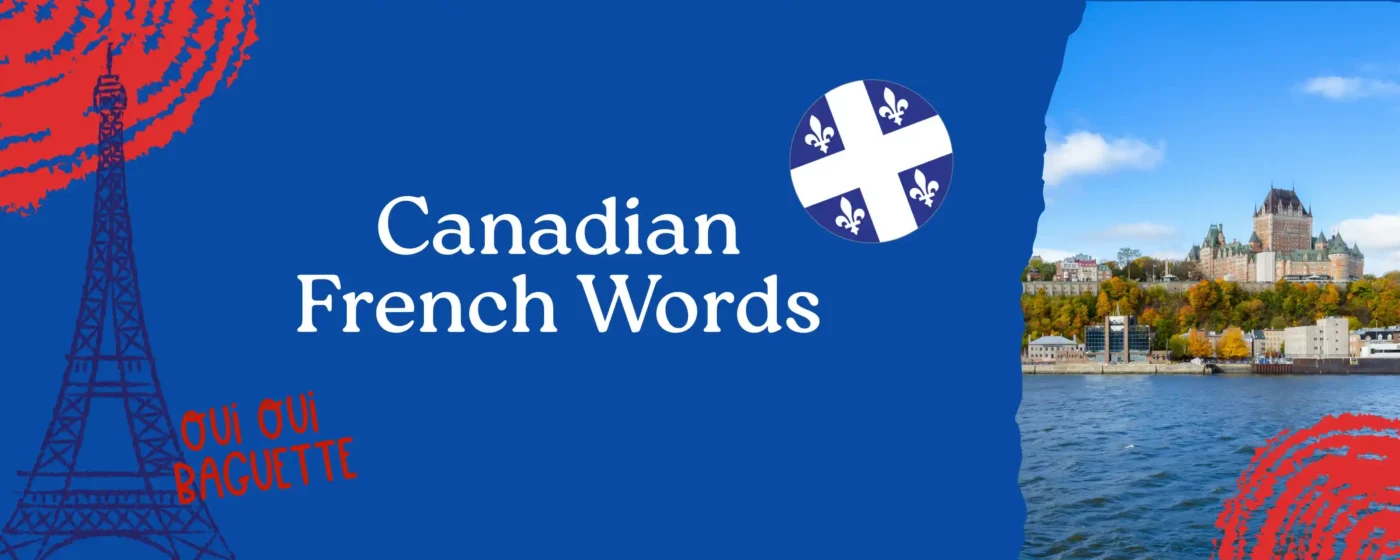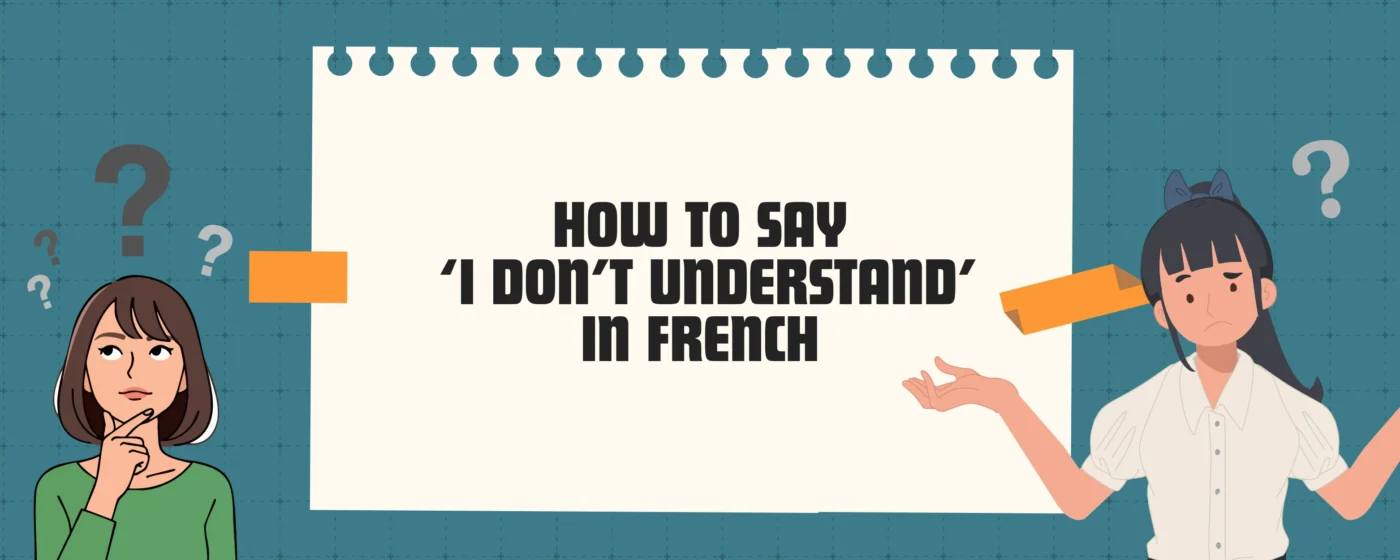13 Hard French Words to Pronounce and How to Master Them?

Ever tried ordering a croissant in French and got a blank stare from the server? Or perhaps the ‘r’ in certain French words just doesn’t seem to roll off your tongue as easily as those actors in the movies? Well, it’s a common struggle, especially for non-native speakers. Unlocking these French nuances and pronouncing French words is a perfection that can only be gained through practice.
It not only makes you understood but also significantly boosts your confidence, transforming those hesitant whispers into clear, elegant speech. Ready to move beyond guesswork and truly embrace the artistry of spoken French? With La Forêt French Class you can rediscover those difficult French pronunciations, among other French-related things and boost your confidence in the process.
Key Takeaways
- Learn some hard words and know how to pronounce them, which enhances your fluency for the French language proficiency test.
- Know the words of break toughies such as mille-feuille (meel-foy), verrouiller (veh-roo-yay), or quincaillerie (kan-kai-ree) into syllables and go slow.
- Know the nasal sounds word in Rouen (roo-ahn), aïeux (ah-yuh), hautbois (o-bwah) feel weird, listen to natives on apps.
- Learn everyday words in French, such as chirurgien (shee-roo-zee-yan), pneumatique (new-mah-teek), heureux (uh-ruh), and practice these the most.
- Learn different word types like silent letters and liaisons (like les amis = lez-amis) are the real bosses—nail ’em and you’ll sound natural fast!
Hard French Words to Pronounce: Why Is French Pronunciation Tricky?
French pronunciation presents distinct hurdles for non-native speakers. This is largely due to the fundamental differences in phonetic systems.
- Silent letters are a great example of this. For example: learning that the final consonants often aren’t pronounced (like the ‘s’ in Paris or the ‘t’ in chat) requires retraining ingrained habits.
- Nasal sounds, like those in pain, vin, and bon, are almost alien for many non native-speakers! This is because these nasal sounds lack direct equivalents in languages like English.
- Liaisons, where a silent consonant at the end of a word is pronounced when followed by a vowel sound (les amis sounds like lez-amis), add another layer of complexity and can trip up learners.
These specific sounds and rules don’t exist in many languages, leading to common errors in pronunciation. A slight mispronunciation, like confusing poisson (fish) with poison (poison), can lead to awkward or even humorous misunderstandings, highlighting just how crucial accurate pronunciation is for clear communication!
Let’s help you rediscover such 10 difficult to pronounce French words while making the basics clear for your French learning. Allez-y!
Enhance your vocabulary by exploring these essential French acronyms and abbreviations commonly used in everyday conversations and official documents.
Top 13 Hard-to-Pronounce French Words
Think croissant is tricky to pronounce? Let’s have a look at some of the most difficult French words to pronounce for English speakers and learn how to master their pronunciation.
1. Grenouille
Translation: Frog
Pronounciation: greuh-noo-y
This tricky to pronounce word can come up when talking about animals, nature, children’s stories, French cuisine. Note: The double ‘l’ in ‘grenouille’ can cause trouble for learners, as it is pronounced like a /y/ sound, which is a common challenge in French words to pronounce. This is a difficult word for English speakers and is often used in tongue twisters.
Example: La grenouille coassait au bord de l’étang. (The frog was croaking at the edge of the pond.)
2. Rouen
Translation: A city in France
Pronounciation: roo-ahn
This word often comes up when discussing travel destinations in France or French history. Note: ‘Rouen’ is a difficult word to pronounce due to the back to back vowel and consonant sounds, and the nasal vowel at the end requires you to shape your mouth carefully. Imagine the sound and practice the nasal ending. This is one of the most difficult French words for English speakers.
Example: Nous avons visité la magnifique cathédrale de Rouen. (We visited the magnificent cathedral in Rouen.)
3. Verrouiller
Translation: To lock
Pronounciation: veh-roo-yay
This verb is commonly used while giving instructions about security, describing an action like locking a door or a phone, discussing safety measures. Note: ‘Verrouiller’ is a French verb with a double ‘r’ and double ‘l’, both of which can be tricky to pronounce. The double consonants require careful articulation, and the word can cause trouble for non-native speakers. Break it into syllables for easier pronunciation.
Example: N’oubliez pas de verrouiller la porte avant de partir. (Don’t forget to lock the door before leaving.)
4. Ecureuil
Translation: Squirrel
Pronounciation: ay-koo-ruh-y
One must know how to pronounce the term ‘squirrel’ correctly to engage in conversations about nature, or animals at a young age. Note: The first syllable and the beginning of ‘écureuil’ can be challenging, and the diphthong at the end is a flattened version of ‘oy’. This is a difficult French word for English speakers and is often used in tongue twisters. Imagine the sound and break it into syllables.
Example: L’écureuil a rapidement grimpé le long du tronc. (The squirrel quickly climbed up the trunk.)
5. Bouilloire
Translation: Kettle
Pronounciation: boo-lwahr
Suppose you went to your French friend’s place and wished for some warm water or wanted to make some tea, but don’t know how to pronounce ‘kettle’; how awkward! Note: The double ‘l’ in ‘bouilloire’ and the sequence of vowels make it a hard French word. Breaking it into syllables helps, and it’s a common word in tongue twisters.
Example: bouilloire. (The water is boiling in the kettle.)
6. Pneumatique
Translation: tire/tube
Pronounciation: new-mah-teek
This is an important-to-know word for car enthusiasts, especially when they get a pesky ‘flat tire’ at the side of the road! Note: ‘Pneumatique’ has a cumbersome length with many syllables, and the silent first letter ‘p’ can be confusing. Break it into syllables and pay attention to the beginning sound.
Example: Il faut vérifier la pression de chaque pneumatique avant de partir. (You must check the pressure of each tire before leaving.)
Stop Guessing, Start Speaking!
With our expert tutors, you’ll master the words you need to speak French confidently!
7. Aïeux
Translation: Ancestors/Forefathers
Pronounciation: ah-yuh
This word can be utilized to discuss family history or genealogy. Note: The diphthong in ‘aïeux’ is a flattened version of ‘oy’, making it a difficult word to pronounce for English speakers. Imagine the sound and break it into syllables.
Example: Mes aïeux venaient de cette région. (My ancestors came from this region.)
8. Chirurgien
Translation: Surgeon
Pronounciation: shee-roo-zee-yan
God forbid you need to see a surgeon to get a procedure done in France but don’t know how to say the word, how inconvenient! Note: The word chirurgien is a challenge for English speakers due to its tricky ‘r’ sounds, which should be pronounced like a cat purring. Fun fact: ‘chirurgien’ is also the French word for a type of surgeonfish. This is a difficult French word and is often used in tongue twisters.
Example: Le chirurgien a réalisé une opération délicate. (The surgeon performed a delicate operation.)
9. Hautbois
Translation: Oboe
Pronounciation: o-bwah
This is a crucial word for musical enthusiasts, those who wish to discuss classical music or even just musical instruments. Note: The ‘ou’ in ‘hautbois’ is pronounced as a low-pitched ‘ooh’ sound, which can be tricky for learners. Break it into syllables for better pronunciation.
Example: Le son mélancolique du hautbois emplit la salle de concert. (The melancholic sound of the oboe filled the concert hall.)
10. Gageure
Translation: A difficult challenge
Pronounciation: gah-zhoor
Feeling extremely daring today? You must know how to pronounce “gageure” then and describe that daunting task effectively! Note: ‘Gageure’ is one of the remaining words that are exceptions to pronunciation rules, making it a difficult word to pronounce. It often causes trouble for learners.
Example: Relever ce défi était une véritable gageure. (Taking on this challenge was a real challenge.)
11. Mille-feuille
Translation: A thousand leaves (French dessert)
Pronounciation: meel-foy
This is a classic French dessert whose name literally means ‘a thousand leaves’ or ‘thousand leaves’, referring to its many layers of puff pastry. Note: ‘Mille-feuille’ is a French word to pronounce that presents a pronunciation challenge due to the double ‘l’, the ‘euille’ ending, and the need to break it into syllables. This is a hard French word for English speakers and is often included in lists of the most difficult French words.
Example: J’ai commandé un mille-feuille en dessert. (I ordered a mille-feuille for dessert.)
12. Quincaillerie
Translation: Hardware store
Pronounciation: kan-kai-ree
This is the French word for hardware store, and it’s notoriously difficult to pronounce due to its length and the sequence of vowels and consonants. Note: ‘Quincaillerie’ is a hard French word to pronounce, so break it into syllables and pay attention to the double ‘l’ and ‘r’ sounds. This word often causes trouble for non-native speakers.
Example: Je dois aller à la quincaillerie pour acheter des outils. (I need to go to the hardware store to buy some tools.)
13. Heureux
Translation: Happy
Pronounciation: uh-ruh
This word to pronounce means ‘happy’ and is often contrasted with ‘sad’ (triste). Note: ‘Heureux’ requires two short bursts of air—an ‘uh’ and a ‘ruh’—and the first letter ‘h’ is silent. The pronunciation involves a nasal vowel, and mastering it is essential for expressing emotions in French. This is a difficult French word for English speakers and is often used in tongue twisters.
Example: Il est heureux d’avoir réussi. (He is happy to have succeeded.)
Boost your French vocabulary while enjoying a good laugh with these quirky, amusing expressions featured in 30 Funny French Words and Phrases You Need to Know.
Tips to Improve Your French Pronunciation
Here are some practical tips to refine your French pronunciation:
- Chatting up the Natives: Regularly practice speaking with native French speakers, perhaps through language exchange partners or conversation groups. Join a French conversation group on platforms like Meetup or find a language exchange partner online to practice your speaking and pronunciation. Their direct feedback will be invaluable for correcting errors and absorbing natural intonation. Learning to pronounce French words is a key part of learning French as a foreign language, and interacting with natives helps you overcome common pronunciation challenges.
- Your Digital Accent Coach: Make the most of online tools that provide clear audio demonstrations of French sounds and words. Use a pronunciation app like Forvo to hear how native speakers pronounce specific words, or watch a YouTube video explaining the difference between French ‘u’ and ‘ou’ sounds.
- The Record and Improve Method: A highly effective method is to record yourself speaking French phrases or sentences. For example, you can record yourself saying “Je suis français(e)” and listen back, comparing it to a native speaker saying the same phrase to identify differences in vowel sounds or rhythm.
- Break It Down by Syllable: When you encounter a difficult French word, break it down into individual syllables. Focusing on each syllable separately can make pronunciation easier and help you master the correct rhythm and stress.
- Practice Sounds and Mouth Positioning: Practice the unique French sounds, especially nasal vowels and the guttural ‘r’. Pay attention to how your mouth moves and the shape it forms for each sound, as correct mouth positioning is crucial for accurate pronunciation.
- Try Tongue Twisters: Use French tongue twisters as a fun and challenging way to practice difficult sounds. Tongue twisters help you improve your pronunciation, master tricky words, and develop better control over your mouth movements.
- French Beyond the Basics: Pay close attention to the rhythm, stress, and intonation of French. Practice asking a question like “C’est vrai?” ensuring your voice rises at the end, mimicking the typical French interrogative intonation.
You can also consider enrolling in a professional French language course for expert, tailored guidance. Experienced instructors facilitating such courses can provide specific feedback on your pronunciation challenges like the French ‘r’, offering targeted exercises to help you master difficult sounds and nuances effectively. Begin by exploring tailored lessons at La Forêt French Class and innumerable informative blogs at French Language Learning Blog today!




